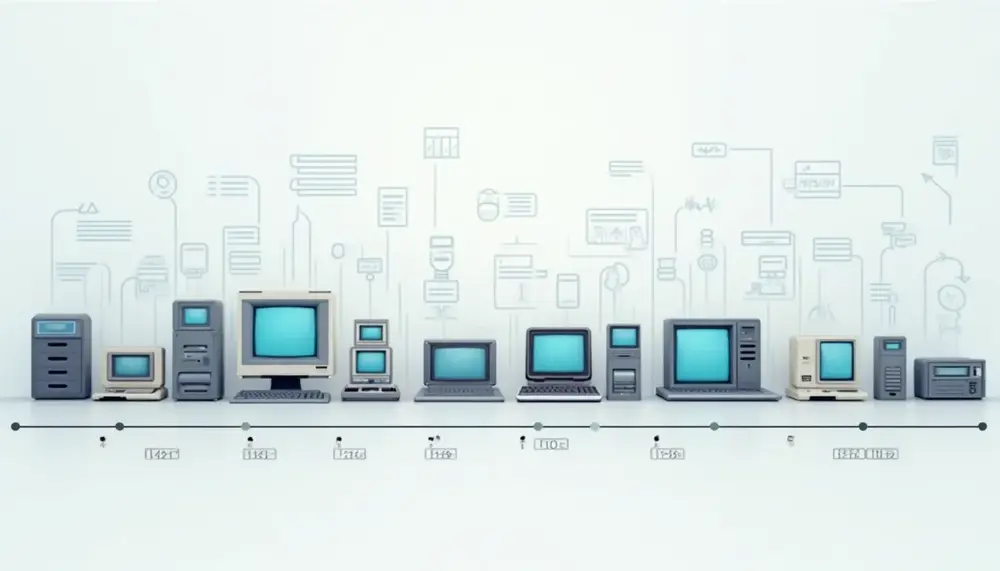Posts on the Topic Technology

Knowledge Management (KM) is essential for organizations, integrating technology and human factors to enhance learning, collaboration, and innovation through effective knowledge sharing. Understanding the types of knowledge and their representation in IT systems is crucial for optimizing KM practices and...

Choosing the right knowledge management (KM) company requires understanding your specific needs, including goals, challenges, audience, integration capabilities, scalability, and budget. Evaluating technological capabilities and customization options is also essential to ensure the solution aligns with your organization's evolving requirements....

The role of knowledge management librarians is crucial for effective information organization and sharing in libraries, requiring diverse skills like analysis, communication, and technology integration. Certifications in knowledge management enhance their expertise and career prospects while adapting to digital trends....

Knowledge Management (KM) focuses on systematically capturing, storing, sharing, and utilizing knowledge to enhance organizational efficiency and innovation through effective systems and processes. The book "Knowledge Management: Systems and Processes" offers practical strategies for implementing KM in organizations while emphasizing...

To become a successful knowledge management expert, one must develop essential skills such as analytical thinking, communication, technological proficiency, and collaboration. Implementing strategic approaches like creating knowledge databases and fostering an open culture enhances effective knowledge capture and dissemination within...

The Master of Science in Knowledge Management (Coursework) - IM701 at Universiti Teknologi MARA equips students with essential knowledge and skills for effective knowledge management, blending theory with practical applications to enhance organizational success. The program offers flexible study modes...

The Master of Science in Information Systems Management (MS-ISM) equips students with essential skills for leadership roles by blending technical expertise and managerial knowledge, while offering flexible learning options and practical experience. Its comprehensive curriculum prepares graduates to excel in...

Management Information Systems (MIS) integrate data, technology, people, and processes to enhance decision-making and organizational efficiency, evolving from manual systems to advanced cloud solutions. Their development reflects technological advancements that have transformed business strategies while presenting challenges like implementation costs...

Knowledge management is vital in the pharmaceutical sector for enhancing decision-making, retaining expertise, improving collaboration, ensuring compliance, and accelerating drug development. However, challenges like employee turnover and inadequate documentation can hinder effective knowledge retention....

Knowledge Management Specialist salaries depend on technical skills, leadership experience, certifications, and location; typical ranges are $60k–$140k in the US and €45k–€95k in Europe. Combining advanced expertise with strategic impact leads to higher earnings but requires ongoing learning and adaptability....

Staying updated in knowledge management is essential to leverage emerging technologies, address organizational challenges, and maintain a competitive edge. KM newsletters provide curated insights, actionable strategies, and networking opportunities that foster continuous learning and professional growth....

The article emphasizes designing an effective Information Management System (IMS) syllabus by aligning academic theory with practical applications, using a modular structure to ensure clarity and progression. It highlights the importance of clear objectives, audience-specific tailoring, real-world relevance, and fostering...

The digital era has revolutionized knowledge sharing through AI, collaboration tools, and real-time analytics, fostering innovation but posing challenges like silos and data security. Organizations must strategically balance technology adoption with cultural shifts to thrive in this dynamic landscape....

Nanyang Technological University (NTU) integrates knowledge management into its academic ecosystem, offering a globally recognized Master of Science program that combines interdisciplinary learning, practical applications, and industry collaboration to prepare students for leadership in the evolving knowledge economy. The program...

Knowledge management (KM) is essential for modern organizations, transforming raw data into actionable insights through structured systems and technology to enhance decision-making, collaboration, and innovation. Effective KM fosters employee satisfaction, agility, and continuous learning while leveraging tools like AI and...

Zara revolutionizes fast fashion through a unique blend of creativity, data-driven decision-making, and ICT integration, enabling trend anticipation and rapid product cycles. Its knowledge management system ensures seamless collaboration and efficiency but demands significant resources while balancing speed with employee...

Knowledge sharing in Communities of Practice (CoPs) fosters collaboration, innovation, and collective growth through trust, clear goals, diverse perspectives, and technology. By integrating structured processes with flexibility and leveraging digital tools, CoPs create dynamic ecosystems that empower members to solve...

Information Management Systems (IMS) have evolved into dynamic tools that integrate advanced technologies like AI, cloud computing, and IoT to drive data-driven decisions and innovation. These systems enhance collaboration, scalability, and real-time analytics but face challenges such as security concerns,...

Leading journals in information management provide profound and practical insights by fostering interdisciplinary collaboration, focusing on user experience, and bridging theoretical research with practical applications. The Journal of Management Information Systems plays a pivotal role by disseminating cutting-edge studies, facilitating...

















